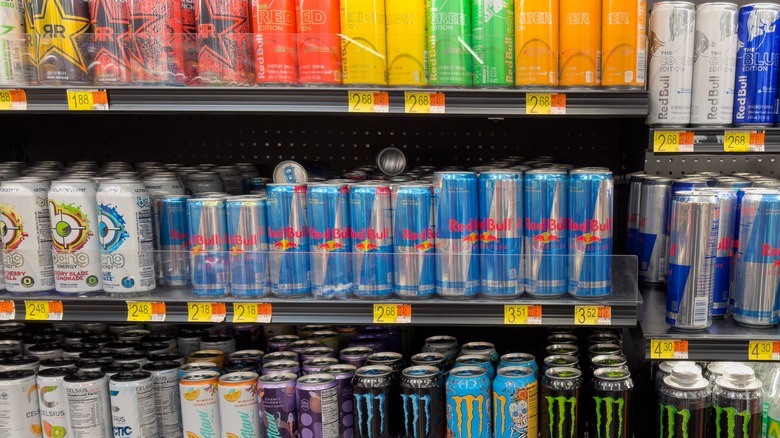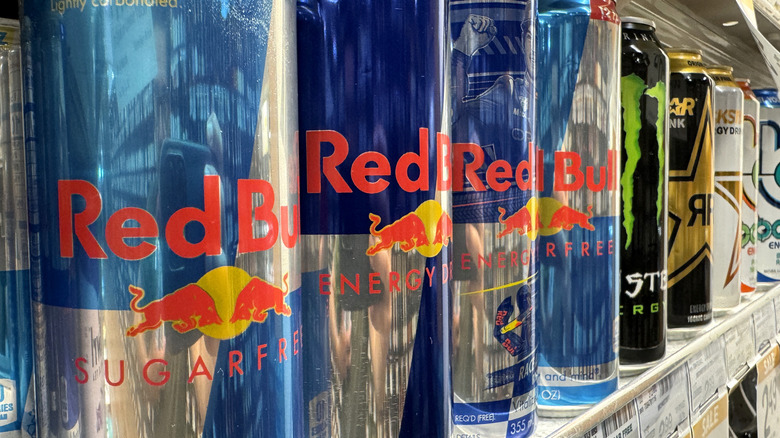Are There Any Child-Safe Energy Drinks?
Energy drinks are all the rage with kids and teens nowadays. Prime Energy, co-founded by internet celebrities Logan Paul and KSI, is especially popular thanks to its flashy branding and social media marketing often aimed at children under 18. It's not uncommon to see kids clamoring for one of Prime's brightly-colored cans at the convenience store, or bragging about drinking one to their friends at school. Despite their appeal, the unfortunate reality is that there's no such thing as a child-safe energy drink.
According to the Center for Disease Control and Prevention (CDC), adolescents aged 12 through 18 shouldn't consume more than 100 milligrams of caffeine per day. Prime Energy contains 200 milligrams of caffeine per can, which is equivalent to about two cups of coffee and twice the recommended daily caffeine intake for adolescents. When examining the caffeine content of the most popular energy drinks, some beverages like G-Fuel, Rockstar Xdurance, Celsius Heat, and Bang contain a whopping 300 milligrams of caffeine per serving. The maximum amount of caffeine adults can safely consume each day is 400 milligrams, which means that even for adults, drinking just one can of these drinks provides enough caffeine to almost reach the daily limit.
In addition to caffeine, energy drinks are often packed with sugar and frequently contain other stimulants such as guarana. Ultimately, the best beverage for kids and adolescents to drink is water. For a more flavorful child-safe beverage, opt for milk, plant-based milk, flavored water, or homemade smoothies.
Why is caffeine dangerous for children and adolescents?
While caffeine is safe in moderation for adults, it causes significant disruptions to a child's developing mind and body. If consumed too late in the afternoon or evening, caffeine can cause a child to have trouble falling asleep or decreased quality of sleep. As a child grows, high-quality sleep is especially important, as it allows the body to recharge itself and release necessary growth hormones in the brain. With less sleep due to caffeine, a child may also experience increased mood irritability, stress, anxiety, and depression.
Even if consumed in the morning, caffeine can cause a plethora of minor physical and mental symptoms in children. These include (but aren't limited to) headaches, jitters, diarrhea, elevated heart rate, dehydration, and rapid breathing. If caffeine is frequently consumed in excess for extended periods of time, it can even lead to irregular heart rhythms and caffeine withdrawal symptoms in the long-term. Of course, these symptoms can manifest themselves in adults with caffeine sensitivities, as well. For example, Panera discontinued its controversial charged lemonades when a 21-year-old died after consuming a large amount of the energy drink in 2022. Ultimately, the best way to increase a child's energy level is through a nutritious diet and high-quality sleep at night.

